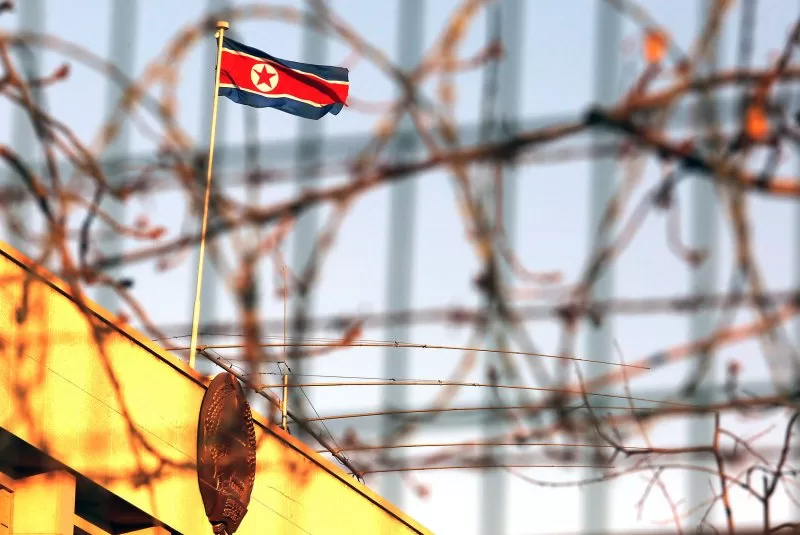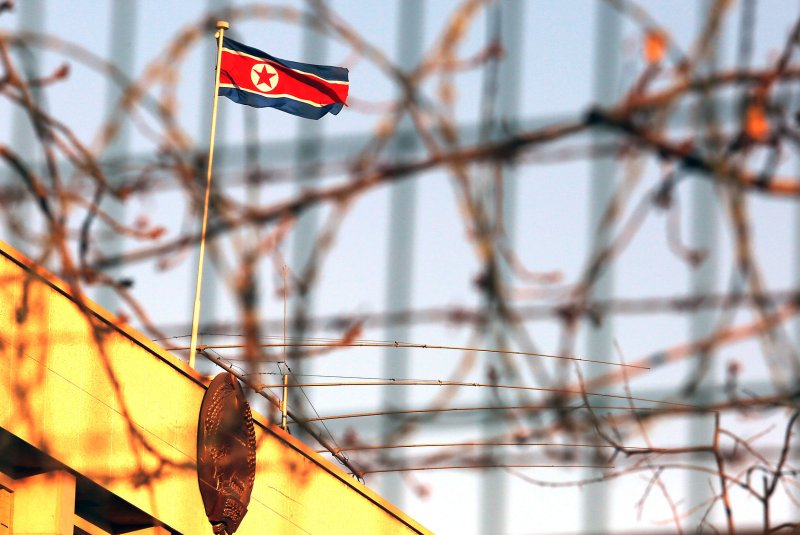A Human Rights Watch report released Thursday said North Korea has grown more repressive and isolated since the COVID-19 pandemic. File Photo by Stephen Shaver/UPI |
License PhotoSEOUL, March 7 (UPI) — Heightened security measures and border closures imposed by North Korea over the past few years have had “devastating consequences” on the lives of ordinary citizens, a report released Thursday by Human Rights Watch said.
At the start of the COVID-19 pandemic in early 2020, North Korea sealed the country’s borders, building hundreds of miles of new fencing and giving “shoot on sight” orders to border guards. Along with a tightening of trade and cross-border movement with China that began in 2018, North Korea — already one of the world’s most reclusive states — has become even more isolated and repressive, according to the New York-based rights group.
“The people of North Korea are now almost entirely cut off from the rest of the world, enduring horrific abuses and a calamitous humanitarian situation, with no end in sight,” the report said.
Interviews with almost 150 North Korean escapees highlight the impact of the government’s clampdown on everything from food security to information access to the ability to leave the country.
L. Young Mi, a former herbal medicine trader, said a relative in North Korea told her in November 2022 that nobody could even get close to the border.
“My [relative] said there were no words to describe how hard life was,” she told HRW. “There was no [informal] trade with China, not even to get some rice or a bag of wheat … My [relative] said people in [her area] said there is not even an ant crossing the border.”
Chronic food shortages were exacerbated during the pandemic, with the United Nations estimating in 2022 that some 41% of North Koreans were food insecure. In 2021, leader Kim Jong Un said North Korea was facing its “worst-ever situation” and called on the country to prepare for another “Arduous March,” a term used for the massive famine of the 1990s.
The report’s analysis of satellite imagery covering 200 miles of North Korea’s northern border reveals a massive buildup of security infrastructure since the start of the pandemic, including new fencing and some 6,820 guard posts — a 20-fold increase since 2020.
The number of North Koreans escaping the country has seen a drastic decline over the same period. While 1,047 North Koreans arrived in South Korea in 2019, that number plunged to 229 in 2020 and just 63 in 2021, according to statistics from the South’s Unification Ministry.
Pyongyang has also attempted to squelch outside information getting into the country, passing a series of laws banning the smuggling or viewing of foreign content and even outlawing using South Korean slang. Reports of public executions for violating the “anti-reactionary thought” laws have emerged.
The psychological toll has had an even greater impact than the fences and guard posts at the border, some North Koreans said.
“It is more the emotional environment and fear more [than the actual physical barriers],” L. Young Mi said. “[My relative] is scared to leave because of the creation of a social environment, a general sense of terror much stronger than a bullet or a wire fence.”
The HRW report arrives some 10 years after the release of the landmark U.N. Commission of Inquiry report on human rights in North Korea. The 2014 COI report documented North Korean crimes against humanity, including torture, rape, execution, deliberate starvation and forced labor, that were “without parallel in the contemporary world.”
The situation has only gotten worse since then, according to HRW.
“Repression has increased under Kim Jong Un,” the report said. “The closure of borders and drastically reduced cross-border movement and trade have violated human rights and increased the suffering of North Koreans.”

